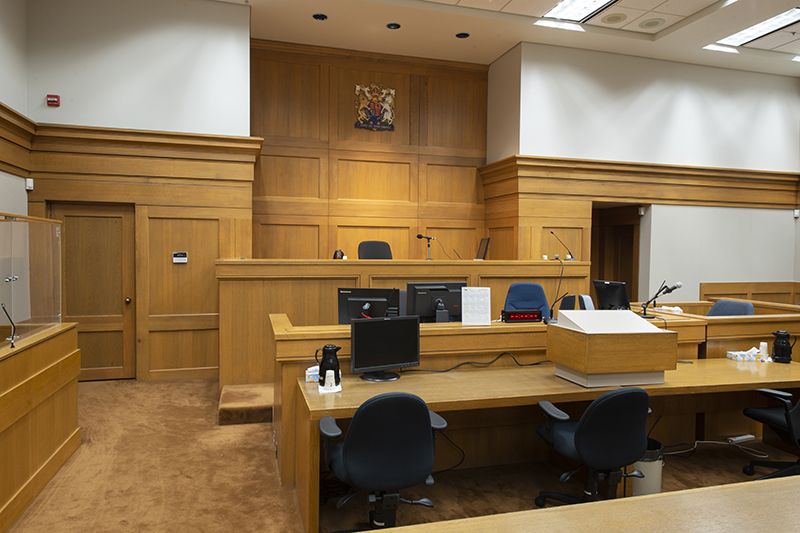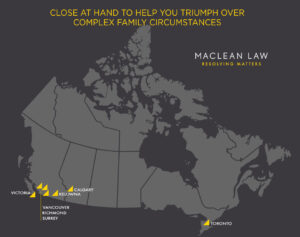
Winning Family Trial Evidence Lawyers know providing proper testimony and evidence is key to a successful outcome. So, What is proper evidence in your BC Family Law Trial? In today’s blog by Darlene Sandhu of our Surrey Office we help clients understand the special rules that apply to ensure your story for the court is properly told and compelling. These tips will help you increase your chances of success on parenting support and family property division.
Vancouver Winning Family Trial Evidence Lawyers 1 877 602 9900
Rollie Thompson Top Ten Evidence “Rules” Every Family Law Lawyer Needs to Know provides a more advance summary of key evidence rules.
There are various ways to introduce evidence into court. You can use:
- Witnesses: a person or yourself who gives evidence to the court orally under oath or affirmation or by affidavit (a sworn written statement). A role of a witness is to tell the facts and a judge’s role is to draw a conclusion from those facts.
- Documents: any documents relevant to your case for example financial statements, receipts for any extracurricular activities, transcripts from examination for discovery, screenshots.
- Expert Opinion: Someone who is qualified with special knowledge, skill, training, and experience. An expert can provide their opinion by coming into Court or through an executed written report. For example, a digital forensics expert can provide an analysis of whether timestamps on certain text messages are accurate or have been manipulated with.
Surrey Winning Family Trial Evidence Lawyers

Specifically, in family law, the party who is trying to obtain a favourable order has to show the facts on a balance of probabilities prove their case. This is done by relying on only relevant information to your family law case. More specifically, relevant of information can be determined as follows:
- Information goes directly to prove a material fact (important or essential) to proving your case.
- Information that goes directly to disproving or discrediting the other sides case.
Don’t Make These Mistakes! 1 877 602 9900
Most common reasons for excluded evidence in family law cases are:
- Privilege: An example of privilege is what you communicate with your lawyer whether verbally or in writing but if you decide you want to disclose this information then you can. Most often in Family law, there are “without prejudice” settlement discussions, meetings and negotiations that occur to resolve the family law matter outside of court. The term “without prejudice” means anything said, written or discussed that is marked “without prejudice” cannot be relied on by any party to support their case unless all parties consent to the information being relied on.
- Hearsay this means quoting something another person said. Sometimes it is okay for a witness to quote another person in a family law trial. For example, you quote your ex-spouse who is essentially (other party of the case). Or you quote a child and the court grants you permission for that evidence to be called as hearsay. (Insert case children hearsay case) Hearsay evidence is not allowed at trials but may be allowed on an interim basis during interim applications.
Kelowna Winning Family Trial Evidence Lawyers
Video and audio evidence in Family Law Trials
Courts may allow audio and video recordings of private conversations to be admitted (see rules of evidence and subject to whether the prejudicial effects of the recordings out weight its probative value).
A few examples of how the Courts deal with such recordings in family law proceedings are as follows:
In Lin v. Wang, 2019 BCSC 1169, where secretly recorded conversations were not admitted, the court commented (at para. 34) that routinely relying on evidence of secretly recorded conversations would “give a cloak of legitimacy to recording personal conversations for use in family law litigation. I consider that practice to be insidious and therefore discourage it”.
See Stewart v. Mulji (25 January 2013), Vancouver E100427 (B.C.S.C.) for a case where the court considered the best interests of the child and the balancing of potential harm in ordering the provision of a phone recording and transcript to a child assessor.
Recordings were admitted in the following cases:
- Finch v. Finch, 2014 BCSC 653: recordings admitted as relevant to difficulties in the exchange of the children for parenting time.
- K.B. v. J.B., 2015 BCSC 704: tape and transcript admitted with amendments to the transcript in respect of translator comments.
- Surrett v. Butkiewicz, 2018 BCSC 1380 (on a voir dire): illegally obtained recording admitted due to high probative value. At trial (2018 BCSC 2194), the court found that the recording evidenced the character of the party who made it (at para. 78).
Recordings were not admitted in the following cases:
- Xie v. Yuan, 2017 BCSC 1766: the court dismissed a mid-trial application to admit into evidence a recording of a meeting between the parties because the late introduction of the evidence would be overly prejudicial and the evidence was unhelpful on any material issue.
- I.J.R. v. J.J.B., 2018 BCSC 1856 (Master): surreptitious recordings excluded as having a “staged feeling to them” and being of little probative value.
- Dhillon v. Dhillon, 2019 BCCA 163: probative value of the audio tape was exceeded by its prejudicial effect; the judge made no palpable and overriding error in their apprehension of the evidence.
- Lin v. Wang, 2019 BCSC 1169: secretly recorded conversations had minimal weight, reflecting only a snapshot with no surrounding context.
- Grosz v. Guo, 2020 BCSC 1073: on an application to set aside a consent dismissal order on grounds of duress, recordings were found neither trustworthy nor relevant to the issues in question.

The rules of evidence can be complicated. It is a good idea to speak to a top family trial lawyer. Call us at 1 877 602 9900 across Canada.








